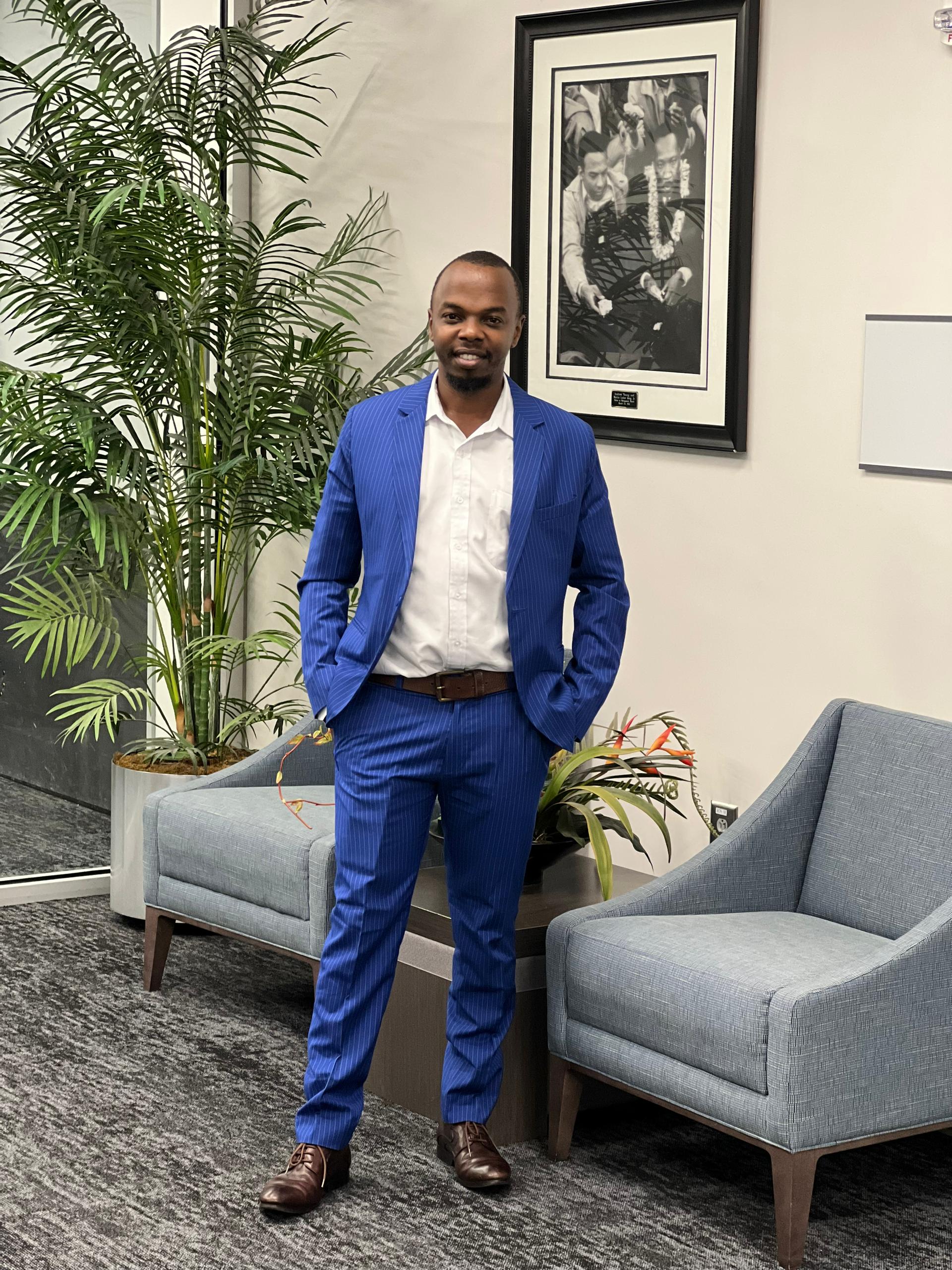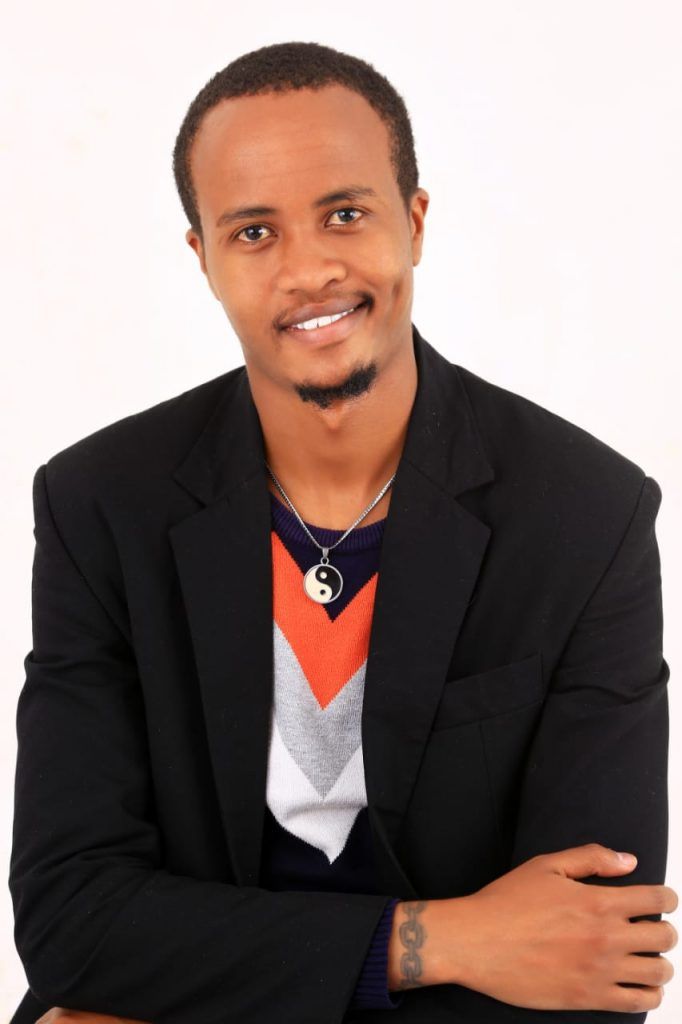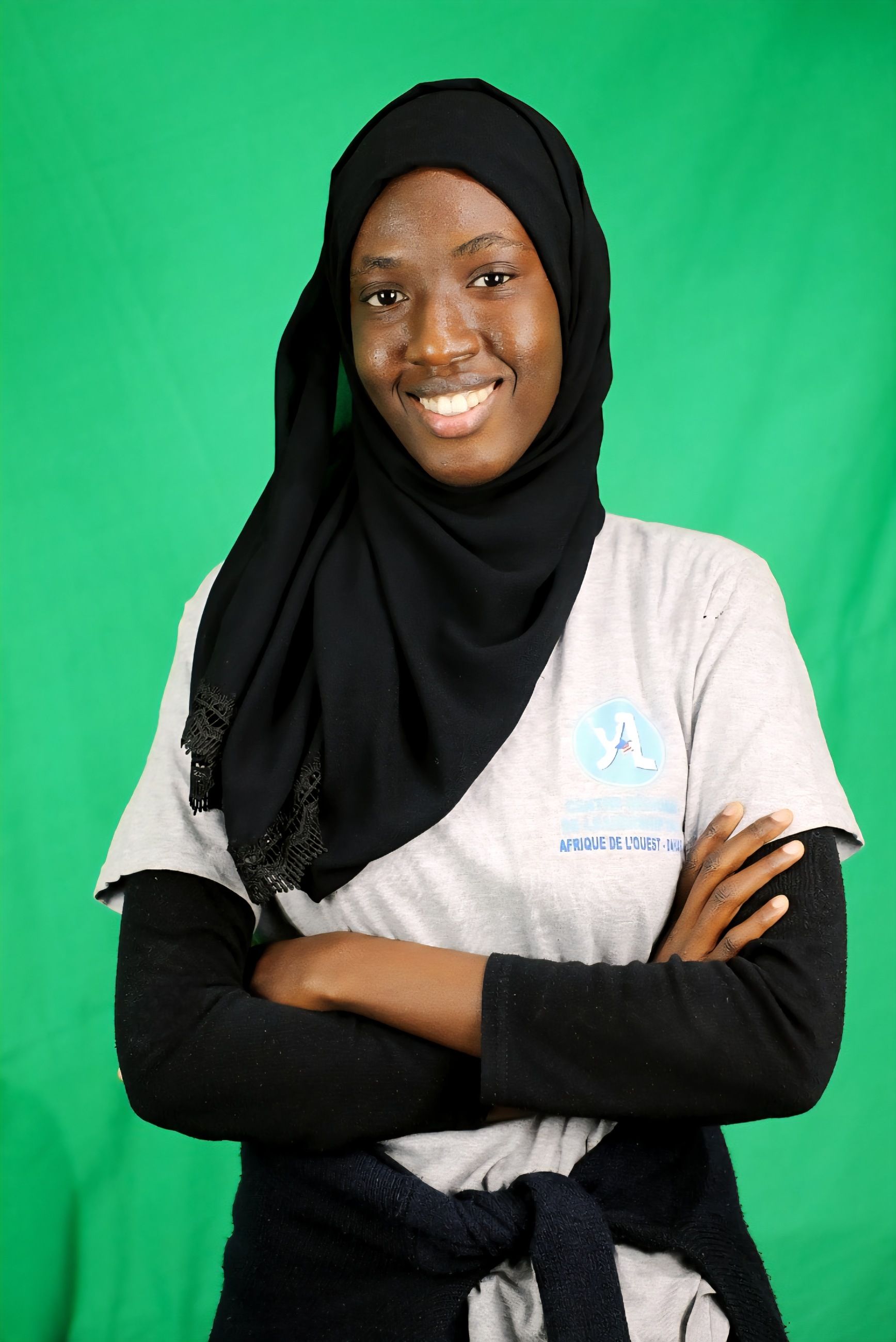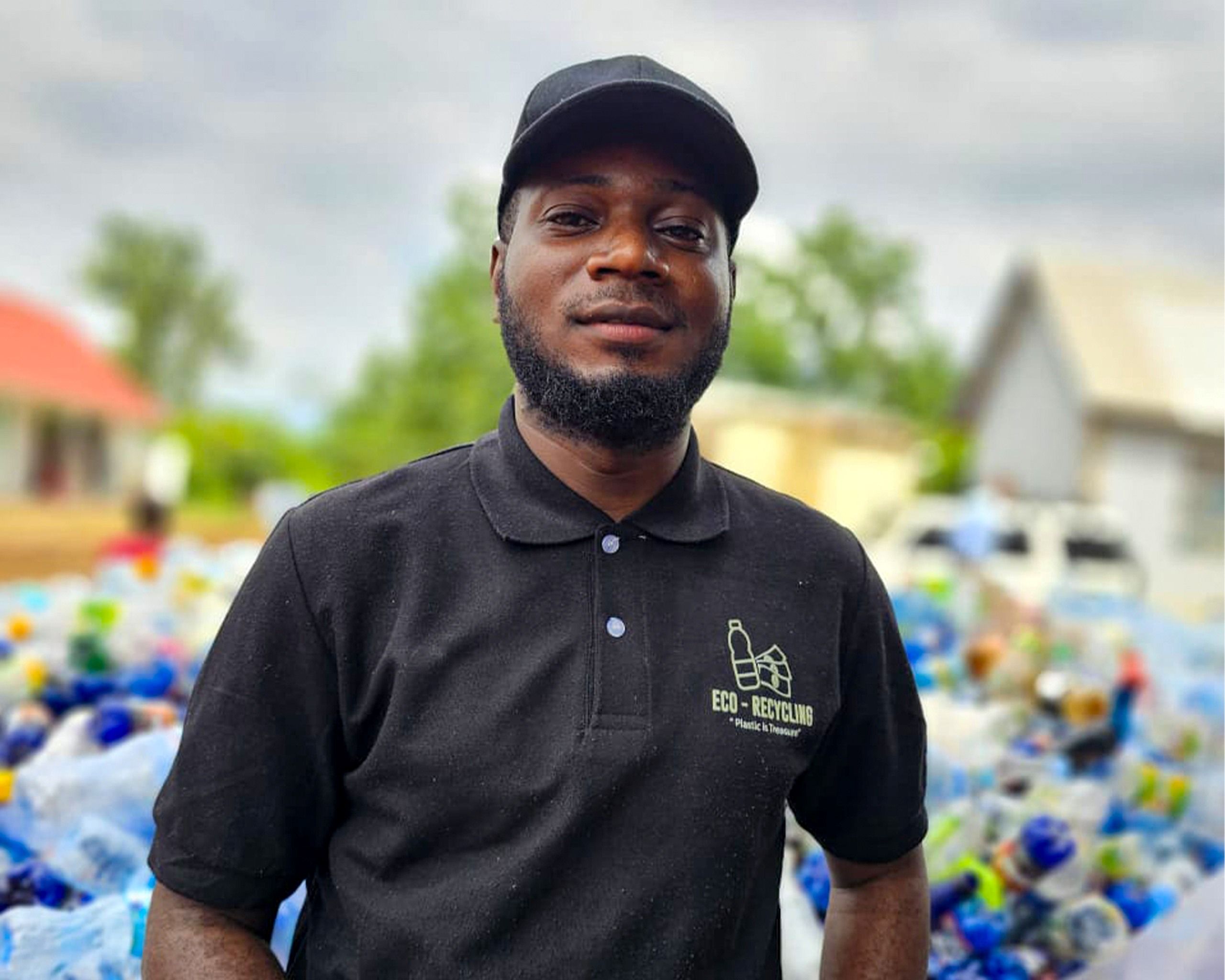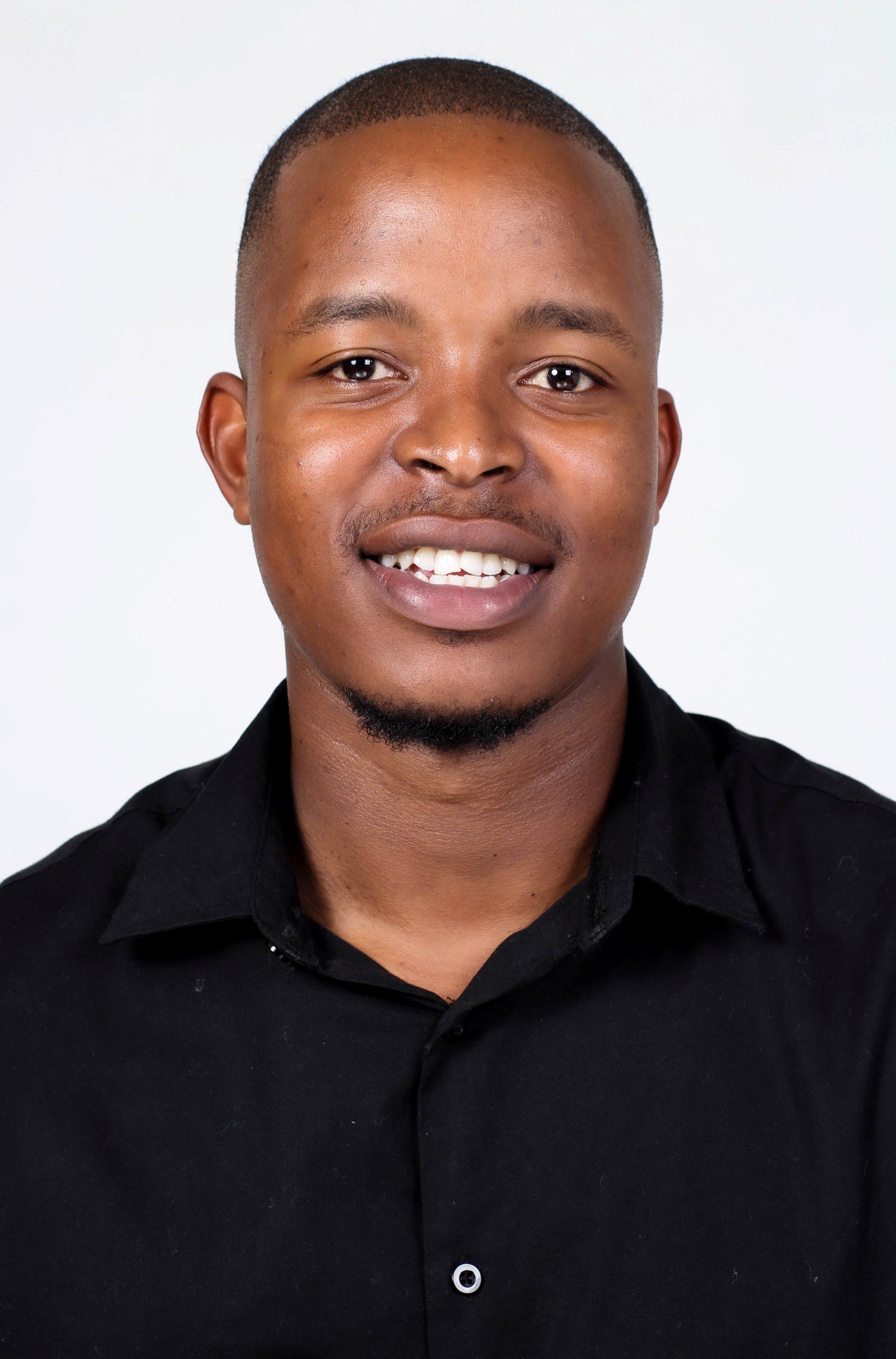
Benson Mwangi Maina. Son of a plumber.
He grew up in Karatina in rural Kenya with his two siblings. He grew up as a happy boy who intellectually toppled other kids in academics, and had a tiny hand stamped out by God to be adroit at sketching. He’d lean his tiny body onto his school desk, move that baby hand around with care, and the results would make others, adults and children alike, marvel.
“Sketching?” I probed him during a Zoom interview.
“Yes. You remember the movie, The Terminator?” He chuckled.
“I do,” I said. For a moment, we let our minds wander back to when we were kids and The Terminator was the topic of conversation in school.
The Terminator, an American science-fiction action film, starred Arnold Schwarzenegger as a never-smiling cyborg assassin from the future named Terminator.
“So what about The Terminator and sketching?”
“I used to get movie posters and sketch him—The Terminator. I was so good that my teachers marvelled. I also sketched cartoons from a newspaper segment by a legend we used to call Wahome ‘Whispers’ Mutahi.”
Wahome Mutahi. A celebrated Kenyan humorist who died in 2003. In his column, Whispers, his picture appeared as a caricature. That’s what Benson would sketch, and the Juha Kalulu cartoons on Taifa Leo.
I asked him how he accessed these newspapers. “My grandfather. He never missed copies of newspapers.”
Benson Mwangi, the boy who excelled in school and sketched like a pro, would years later become the founder of Fanikisha Hub, an outfit bridging the gaps between education, industries, and community through a practical learner and industry-centred model.
His journey, however, has been one featuring a blend of career colours, like a master painter mixing colours to form a perfect desired hue and shade. I interviewed him over a Zoom call in September 2025.
My family wanted us to have a good education
Benson told me that he was different from other kids. I wanted to know how different.
“Most kids detested waking up early to go to school. But I loved it. I loved school so much. I was a curious boy, and this made me love school because that was where I learned new things.”
His parents also supported him in every way; his father worked hard as a technician plumber of a coffee co-operative society to support the education of his children.
“My family wanted us to have a good education. My father would tell me, ‘I am not educating you so that later you can take care of me. No. I am educating you so that later you can take care of yourself and your family.’”
His grandfather also wanted him to excel in class. “Whenever I was sent back home from school because I did not have a pencil or a book, and I found my grandfather at home grazing our family cows, he would lock the cows back in their kraal to go find me a pencil and a book. That’s how much they valued education.”

“It seems like you were the perfect child who never misbehaved.” I lobbed a comment.
“Far from it. While yes, I was a good kid, there was a time over the holidays, when herding our cows, I left them to go play football with my friends. The cows went into the neighbour’s farm, and, in the evening, my father put a good beating on me.” Benson laughed as he recalled those memories.
A bend for the family
One day, Benson came back home as usual. But something was unusual. His father had been laid off by the coffee co-operative society. Benson couldn’t believe it. How would his school fees be paid? A tear glistened as it flowed down his cheek.
“The society was shutting down, and they had begun laying people off. I remember I cried, wondering what would happen to us.”
Luckily, his father had a skill—plumbing—which he could offer as a service for pay.
“Through the help of some friends, he opened his plumbing workshop in Karatina town,” Benson told me.
Since Benson’s father was a heavy commercial plumber, most of the time he was away from the workshop because he took plumbing jobs at factories.
“When I was in upper primary, he would leave me in his workshop over the weekends to sell. He taught me the prices of pipes and other supplies.”
Later, when Benson was in secondary school, his father employed a technician at their workshop. Over the holidays, Benson learned from the technician how to install huge plastic tanks. His father had a partnership with hardware shops, so whenever they sold these plastic tanks, they recommended his workshop for expert installation.
Benson would soon also learn how to install sink taps.
When he sat for his final secondary school examinations, he had months to stay at home waiting for the results. He desired to pursue either Civil Engineering or Instrumentation & Control Engineering.
He spent this time at his dad’s workshop with the technician. That was when a lightbulb went on in his mind, lighting him up with a business idea.
“I thought to myself, many customers buy sink taps and leave. But who fixes it for them?”
Since then, Benson started asking every customer who bought a sink tap, “Do you have someone to fix that for you, or can I accompany you to assist you?”
“Soon enough,” he told me, “I started making my own money. Dad was mostly away delivering in big plumbing jobs at factories.”
A broken dream
When his results came out, Benson had scored a B. To his disappointment, this couldn’t qualify him for a course in Civil Engineering or Instrumentation & Control Engineering as he’d wished. It was a knife twisted in his heart. Blinded by the pain, he muted the calls of his university dreams and kept working at his father’s workshop.
“I chose to keep working at the workshop and not work towards getting a course at the university that suited my grade B cluster points. But my father wouldn’t let me. It only took a while before he started the conversation.”
After all, Benson’s father valued education. There was no way he’d allow a small bend in the road to become a grenade detonating an education dream he held in his heart for his son.
“Son, what are you thinking about your university education?” his father asked him one day.
“Nothing at the moment. I just want to keep working at the workshop.”
“I will not allow that,” his father said. “I want you to go to school and study to become either a clinical officer or a teacher. For a clinical officer, KMTC is a great college. You decide and then let me know. But one way or another, you are going to school.”
Benson neither wanted to become a clinical officer nor a teacher. He wasn’t passionate, so he knew if he pursued these courses, he’d live a life feeling like a fish fresh out of water, struggling at the end of a fisherman’s hook. However, he also knew his father would never let the school conversation go.

“I decided to go for accounting. I chose CPA and told dad I wanted to enrol in Rware College of Accounting in Nyeri.”
His father accepted that. During the course of time Benson spent pursuing CPA up to section 4, in his free time, he still did plumbing works and scraped some money for his errands, beyond the pocket money his father gave him. Over the holidays, he helped his father at the workshop, but in more than just selling pipes and supplies.
“I could now do quotations and delivery notes for him,” Benson told me.
Joining Karatina University
After attaining section 4 of CPA, Benson joined Karatina University for a degree in Business Management.
“I picked Karatina University so I could be close to dad’s workshop. I continued taking side plumbing jobs and helping dad with the business side of the workshop.”
Like a side affair with a woman who captured a man’s heart, plumbing had captured his heart. But Benson knew it had all started way back in the day when his father had built a plumbing system to irrigate his tomato farm. Benson had been in primary school, and it was routine for him to help irrigate his dad’s farm every day after school.
When he graduated from Karatina University four years later, he landed an internship at Digital Opportunity Trust (DOT), a youth empowerment organisation. He then landed a job with the National Government Affirmative Action Fund, NGAAF, this time as a county coordinator in Laikipia. NGAAF empowers women by providing resources for education and empowerment. But Benson, by now, knew the power of hard skills such as plumbing.
Designing a program for youths
“I worked with NGAAF to design a program for youths to equip them with skill-based training. The problem with most youths is that they gain skills like plumbing or as electricians after high school, but have no certification. Their story is like mine.”
“And what does this imply?” I asked him.
“It means they will only get small jobs once in every while, but never big contracts or full-time employment in companies. Certification is important. That’s why, for our program, we picked youths starting afresh and also those who already had the skills.”
More than the skill-based training, Benson told me he did more for the youths. “I also taught them soft skills to set them apart as professionals.”
I asked him for some success stories.
“We had over 3200 youths who graduated in financial literacy, startup toolkits and skills training. Some of them proceeded to get employment at the British Army training unit in Nanyuki. We also bought portable welding machines and other tools of trade, like car washing and block making machines for Portolico and Likii Gacaba youth groups, Kanyoni enterprise, among others.
Since NGAAF was giving grants to women, Benson also started training these women in financial literacy, tapping into his education in CPA and Business Management. This was in 2022.

Back in 2019, Benson had founded his own outfit, Fanikisha Ndoto Youth Program, to leverage his networks to cascade information about where funding opportunities were for the youth, women, and people with disabilities.
When he left NGAAF in 2023, he diverted all his attention to his organisation.
Rebranding to Fanikisha Hub
In 2025, Benson was selected for the prestigious Mandela Washington Fellowship, one of the leading exchange programs for young African leaders, run by the US Department of State. He was selected on his fourth attempt. Through the program, he attended Georgia State University, where, for six weeks, he was equipped with leadership and public management skills.
“I loved Georgia State University because our academic sessions taught us not only public management but also a bit of business and civic engagement.”
“What do you intend to do with Fanikisha Ndoto Youth Program now that you have attended the Mandela Washington Fellowship?” I asked him. And he has dreams, big dreams that, if realised, will change education in Kenya.
In my experience, here’s the thing about education in Kenya: For most of the courses taught at universities, there is a disconnect between what is taught in classrooms and what goes on in the field or what industries look for. Students usually ask, did I go to school or through school?
Benson told me, “I want to change my organisation from Fanikisha Ndoto Youth Program to Fanikisha Hub, a hub that will bridge the gap between what the industry and community want and what is taught in school. We’re bringing the industry to learning institutions. The hub will also, through partnerships with technical institutes and universities, teach students business skills. That way, combined with the hard and soft skills they learn, instead of just thinking about employment or self-employment on that skill level, they can innovate and build companies. We will teach them design thinking and even how to create a one-page business plan—the Business Canvas Model.”
Benson borrowed the learning model he intends to execute from Georgia Tech CREATE-X and LaunchGSU Gwinnett Technical College in the US. It’s what my Professor at The University of Texas at Austin, Professor Rodney Northern, calls ‘Rip and Run’. See what others are doing, learn it, and then plant it in your own backyard, tailored for the specific needs of your environment.
You can connect with Benson here on LinkedIn.
***
Writer’s note:
Of course, I asked Benson Maina about the kid in him who used to sketch. Where did he go? Will we ever see him again?
He told me the boy is alive, now an adult, and that he was the one who sketched the design of his small ‘crib’ in his rural home, Karatina.
So, he never stopped sketching. He only upgraded from sketching cartoons to sketching constructions. Some days, he toys in his mind with plans of pursuing a diploma in civil engineering.
***
This story is part of a series Lesalon Kasaine is writing, of the stories of select 2025 Mandela Washington Fellows. Read more about the Mandela Washington Fellowship for Young African Leaders, a program run by the US Department of State. Lesalon was himself a MWF 2025 Fellow.

